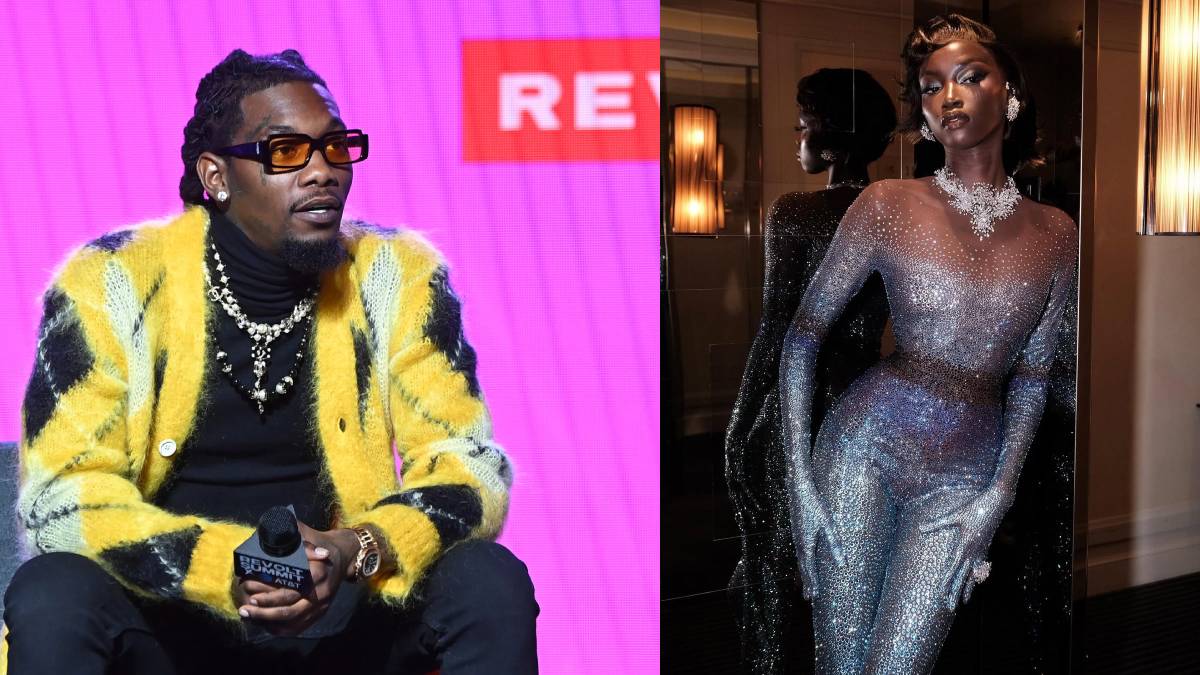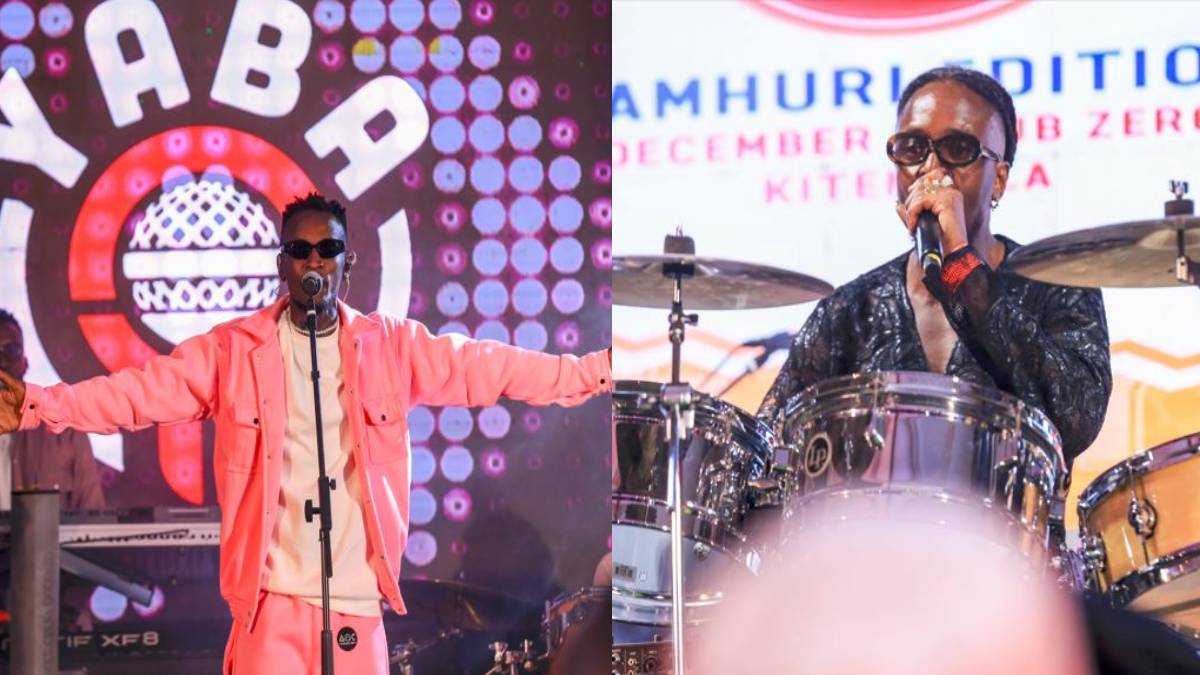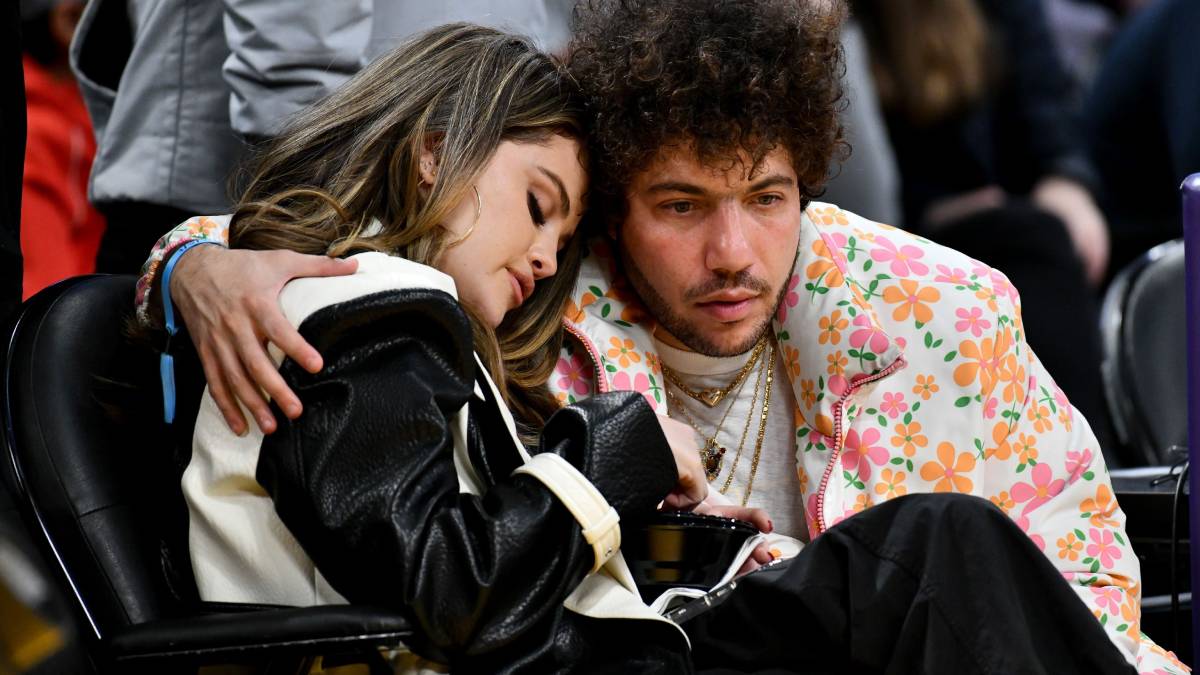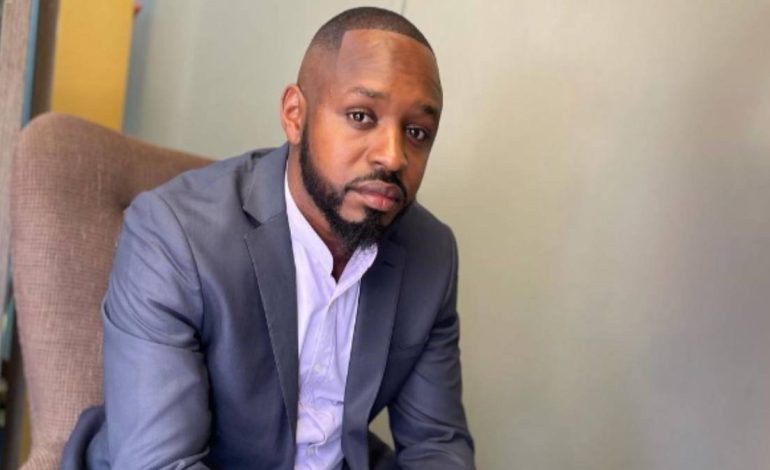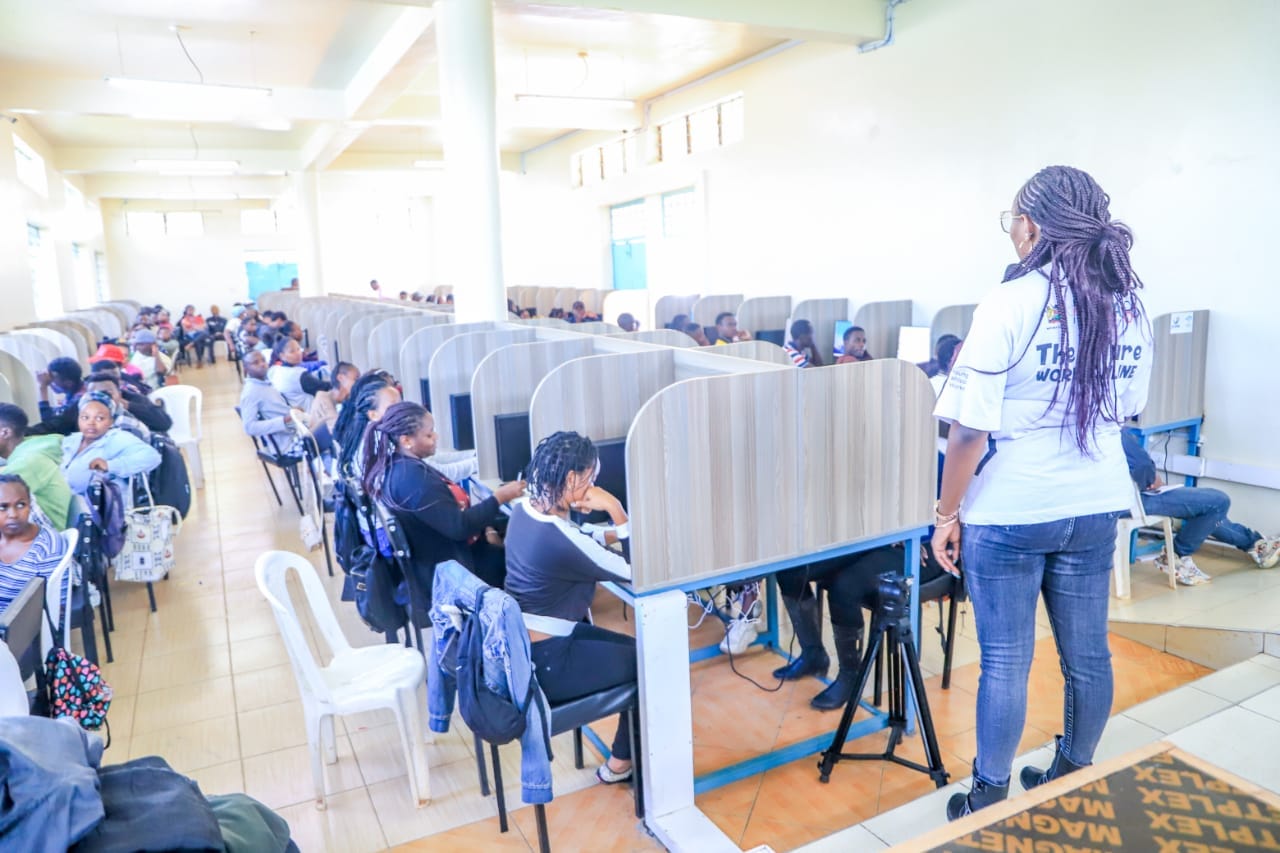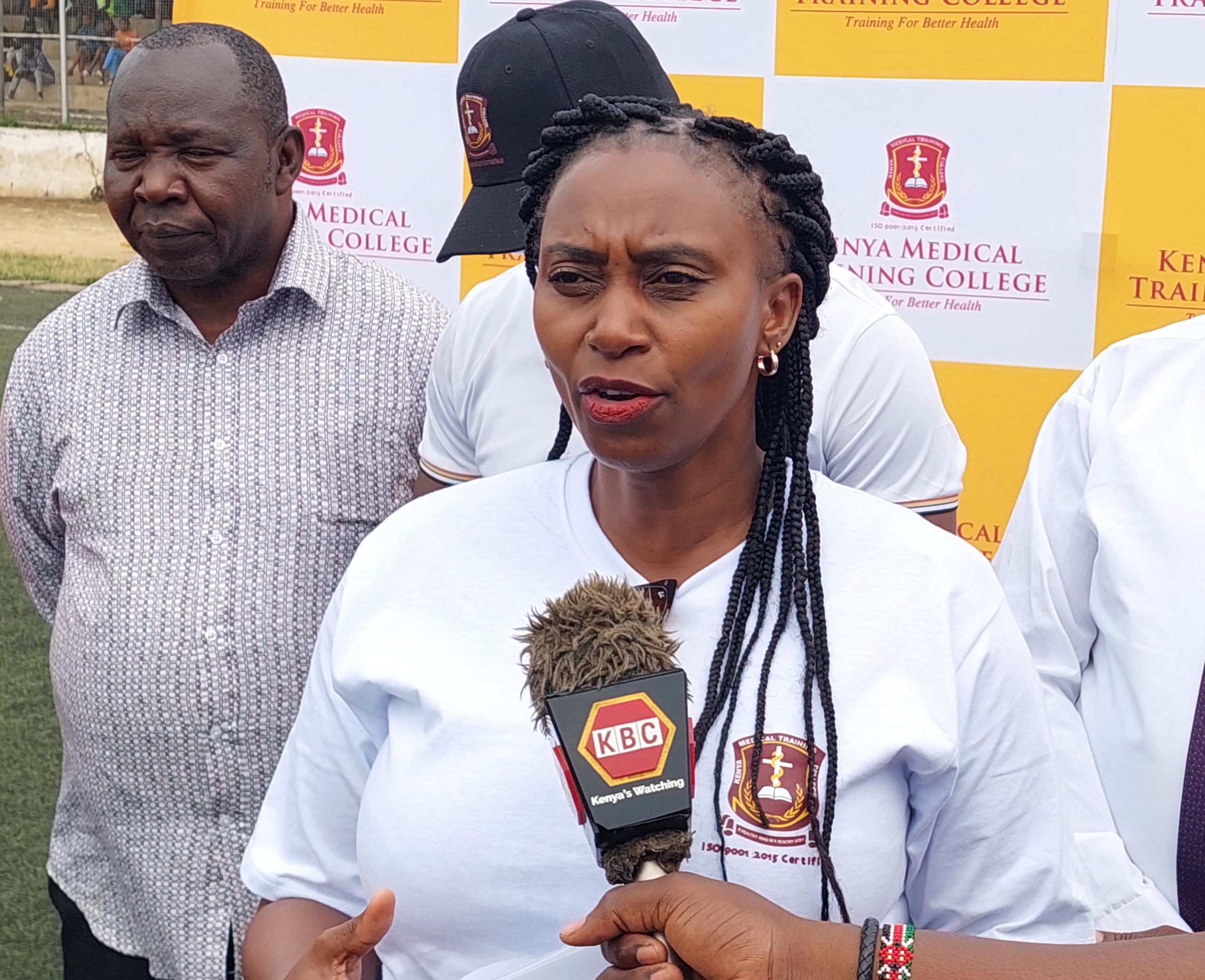Kenya celebrated its heroes on October 20, with thousands attending a national fete at Kwale Stadium in the country’s coastal region.
The day brought patriotic citizens together and reportedly breathed life into the county.
However, human rights activist Boniface Mwangi is criticizing security regulations that barred him and others from accessing Uhuru Park while the event was underway at the coast.
The self-proclaimed People’s Watchman had arranged parallel Mashujaa Day celebrations at the park in Nairobi, but found that police had been deployed to stop the gathering.
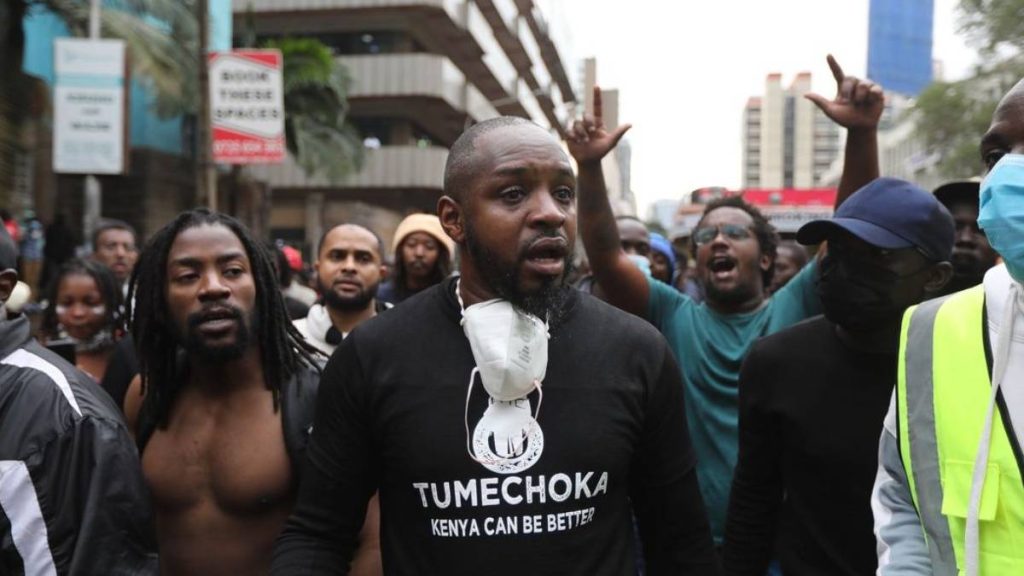
His planned fete was intended to commemorate those who died during the Gen Z protests, per Citizen Digital.
“Police officers who had blocked the park since morning used tear gas canisters to stop the protestors from accessing the park to honour tens who died during the anti-government protests.”
Mwangi took to his Instagram account to share images of police at the entrance, writing: “Good morning from Uhuru Park. We have been stopped from accessing Uhuru Park.”
He scathingly accused those in government of practicing dictatorship, adding, “He has deployed police officers, and l was told we are not allowed in there. I was with my wife, and children.”
“The police officers, and county employees manning the gate said they’re simply following orders. A park named Freedom but there is no freedom in Kenya today.”
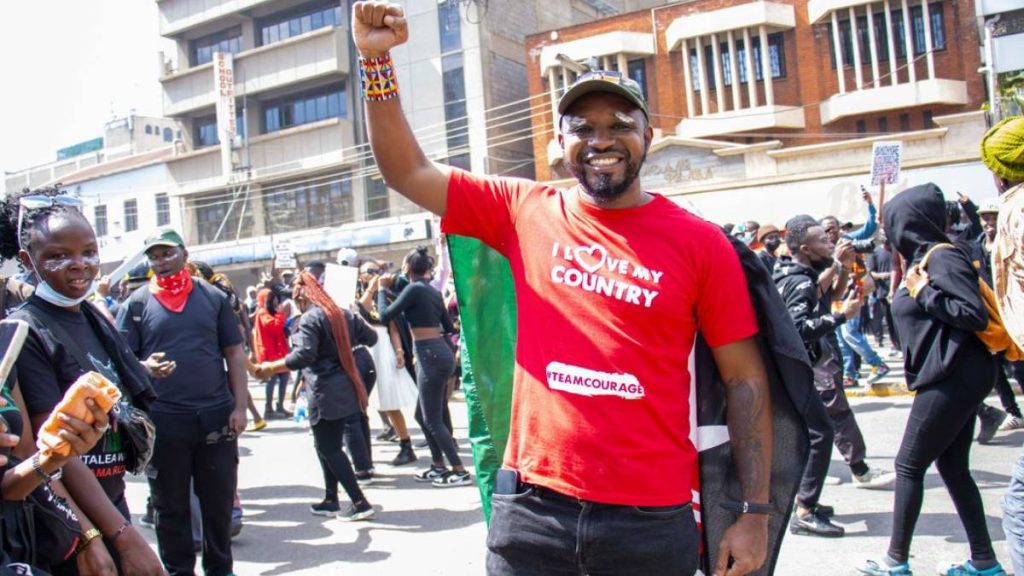
The activist spoke to the press outside the park, expressing frustration at restrictions Kenyans faced at the public venue.
“We told Kenyans to show up, carry flowers, the flag and candles… and we came to Uhuru Park, so that people would gather and celebrate, si ata maandamano (not even demonstrations).
He added that after being turned away at the entrance, those who followed after him, including comedian turned activist Eric Omondi, also experienced the same thing.
“We are asking the government and the president, why are you killing young people? Hakukuwa na fujo (there was no trouble) … it’s a park. Watu wanakuja kwa park na wanapigwa risasi, vitoa machozi na wanapigwa bure (people are coming to a park and they are being shot at, exposed to teargas, and being beaten for no reason).”
The activist further said that some of those who had been turned away from the venue include parents of those who lost their lives during the anti-government protests in June and July.
Young Kenyans created a revolution when they took to the streets during those months to condemn a proposed introduction of taxes on a range of crucial items.
Mwangi wrote on another Instagram post: “Today, we have neither the land nor the freedom. Even our public park in Nairobi, named Freedom (Uhuru), is today blocked by a contingent of police with firearms and water cannons.”
“We cannot even exercise our right to freedom of assembly without risking arrest and injury. We have been taken back to the days of tyranny under colonialism. Our Mashujaas (heroes)must be weeping in their graves.”
While responding to questions raised about police brutality in the country, Government spokesperson Isaac Mwaura told BBC that authorities were “very co-operative with the protesters and acceded to the demands, including the president not assenting to the finance bill.”
As for reports that people were killed during the demonstrations, Mwaura said: “Only police statistics are official. The government regrets any death that occurred during the protests and anyone who may have caused such will be held responsible following the rule of law.”
A recent report by Amnesty International and several other human rights societies indicated that some 61 people, six of whom were shot dead, were killed and another 72 were either abducted or remain missing as a result of the [anti-finance bill] protest, which was met with harsh police response, per Nation.

